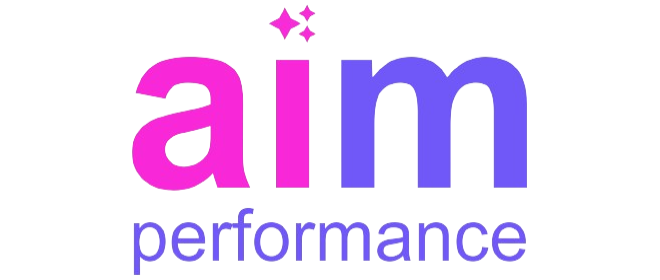In today’s fast-paced business environment, managing the performance of diverse workforces has become increasingly complex. Organizations are recognizing the need for specialized solutions that cater to the unique demands of white-collar, grey-collar, and blue-collar workforce. This is where performance management as a managed service comes into play. By outsourcing performance management, companies can leverage expert-driven strategies to enhance productivity, engagement, and overall organizational effectiveness.
Understanding Performance Management as a Managed Service
What is Managed Service in Performance Management?
Performance management as a managed service involves outsourcing the entire process of employee performance evaluation, development, and improvement to a specialized third-party provider. This provider takes on the responsibility of designing, implementing, and managing performance management systems tailored to the specific needs of the organization. By doing so, companies can focus on their core operations while ensuring that their workforce remains aligned with business objectives.
This approach is particularly beneficial for organizations with diverse workforce segments, as it allows for the customization of performance management strategies to suit the different needs of white-collar, grey-collar, and blue-collar workforce.
Why Choose a Managed Service for Performance Management?
The decision to opt for outsourcing performance management is driven by several factors. First, it offers access to expertise that may not be available in-house. Providers of these services have extensive experience and knowledge in the field, ensuring that the performance management system is both effective and up-to-date with industry best practices.
Additionally, outsourcing can lead to cost savings. By partnering with a service provider, companies can avoid the expenses associated with developing and maintaining an in-house performance management team. Moreover, it allows for scalability, enabling organizations to adjust their strategies as they grow.
Benefits for the White-Collar Workforce
Enhancing Strategic Focus
White-collar employees, often engaged in professional and administrative roles, require a performance management system that aligns with their strategic objectives. Performance management as a managed service can provide this alignment by offering customized strategies that focus on individual and team goals that support the organization’s vision.
Service providers can implement sophisticated performance management tools that offer insights into employee performance, enabling managers to make informed decisions. This strategic focus boosts productivity and enhances employee engagement by providing clear career development paths.
Driving Innovation and Creativity
Innovation and creativity are critical components of white-collar roles. A managed performance management service fosters an environment where these attributes can thrive. By setting clear objectives and providing continuous feedback, service providers help white-collar employees focus on innovative solutions and creative problem-solving.
Furthermore, this approach often includes professional development programs that encourage white-collar workforce to enhance their skills and stay ahead of industry trends. This continuous learning culture drives innovation within the organization.
Benefits for the Grey-Collar Workforce
Bridging the Gap Between Management and Operations
Grey-collar workforce, who typically perform technical or supervisory roles, operate at the intersection of management and operations. Performance management solutions are particularly beneficial for this segment, as they bridge the gap between strategic objectives and operational execution.
Providers offer systems that align technical objectives with organizational goals. This alignment ensures that grey-collar workforce understand how their work contributes to the overall success of the company, leading to increased engagement and accountability.
Enhancing Technical Skills and Competencies
The technical nature of grey-collar roles requires continuous skill development. Performance management as a managed service often includes targeted training and development programs tailored to the specific needs of grey-collar workforce. These programs focus on enhancing technical skills and competencies, ensuring that the workforce remains proficient in their roles.
By outsourcing performance management, organizations can provide grey-collar workforce with access to the latest industry training and certifications. This not only improves individual performance but also enhances the overall efficiency of the workforce.
Benefits for the Blue-Collar Workforce
Simplifying Performance Evaluation
Blue-collar workforce who are involved in manual labor and trade roles, benefit from a straightforward and transparent performance management system. Performance management as a managed service simplifies the evaluation process by setting clear and measurable objectives.
Managed service providers develop performance management strategies that are easy to understand and implement, ensuring that blue-collar workforce are aware of their responsibilities and performance expectations. This clarity reduces ambiguity and helps workforce focus on achieving specific results.
Promoting Safety and Compliance
Safety and compliance are paramount in blue-collar environments. A robust performance management approach emphasizes these aspects by integrating safety metrics and compliance standards into the evaluation process. Providers work closely with organizations to ensure that safety protocols are consistently followed and that workforce are regularly trained on compliance requirements.
By prioritizing safety and compliance, companies can reduce workplace accidents and ensure that blue-collar workforce operate in a safe and regulated environment.
Cross-Collar Collaboration Through Managed Services
Fostering a Unified Workforce
One of the key advantages of performance management as a managed service is its ability to foster collaboration across different workforce segments. Service providers develop performance management systems that promote cross-collar collaboration, ensuring that white-collar, grey-collar, and blue-collar workforces work together towards common goals.
This unified approach breaks down silos and encourages teamwork, leading to a more cohesive and productive workforce. By aligning the objectives of different segments, service providers help organizations achieve greater synergy and efficiency.
Enhancing Communication and Transparency
Performance management solutions also enhance communication and transparency within organizations. Providers implement systems that facilitate regular feedback and communication between employees and managers. This open communication fosters a culture of transparency, where employees feel valued and informed about their performance.
For diverse workforces, this transparency is crucial in ensuring that all employees, regardless of their role, are aware of their contributions to the organization’s success. It also enables managers to identify and address performance issues promptly, leading to continuous improvement.
Customizing Performance Management for Diverse Workforces
Tailoring Strategies to Specific Workforce Needs
The diversity of the modern workforce necessitates customized performance management strategies. Performance management as a managed service allows for the tailoring of strategies to the specific needs of white-collar, grey-collar, and blue-collar workforce. Providers work closely with organizations to understand the unique challenges and requirements of each workforce segment, developing performance management systems that cater to these needs.
By customizing performance management strategies, organizations can ensure that every employee is evaluated fairly and that their performance is aligned with the organization’s objectives.
Implementing Measurable and Relevant Metrics
Measurable and relevant metrics are essential for effective performance management. Providers develop systems that include metrics tailored to the roles and responsibilities of different workforce segments. For example, white-collar metrics might focus on project completion rates, while blue-collar metrics might emphasize production efficiency and safety compliance.
These tailored metrics provide a clear and objective basis for performance evaluation, ensuring that employees are assessed fairly and accurately.
The Role of Technology in Performance Management
Leveraging Advanced Performance Management Tools
Technology plays a crucial role in performance management as a managed service. Providers leverage advanced performance management tools that offer real-time insights into employee performance. These tools include features such as goal setting, continuous feedback, and performance analytics, enabling organizations to monitor and improve performance effectively.
For diverse workforces, these tools can be customized to meet the specific needs of each segment, ensuring that performance management is both efficient and effective.
Integrating with Existing Systems
Another advantage of performance management solutions is the seamless integration with existing systems. Providers ensure that performance management tools are compatible with the organization’s current technology infrastructure, minimizing disruption and ensuring a smooth transition.
This integration is particularly beneficial for organizations with complex and diverse workforces, as it allows for the efficient management of performance across different segments without requiring significant changes to existing processes.
Conclusion: The Future of Performance Management as a Managed Service
Performance management as a managed service offers a comprehensive and flexible solution for managing diverse workforces. By outsourcing performance management, organizations can benefit from expert-driven strategies that enhance productivity, engagement, and overall effectiveness. Whether managing white-collar, grey-collar, or blue-collar workforces, performance management as a managed service provides the customization and scalability needed to meet the unique challenges of today’s workforce.
As organizations continue to navigate the complexities of a dynamic work environment, performance management as a managed service will play an increasingly critical role in driving success. By embracing this approach, companies can ensure that their workforce remains aligned, motivated, and equipped to achieve their goals.










